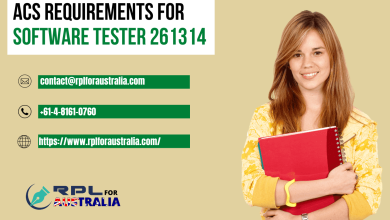APEGS Academic Assessment For International Graduates
APEGS Academic Assessment For International Graduates

Are you an international graduate who is planning to apply for APEGS engineer-in-training status? If yes, reading this blog will help you know about an academic assessment and other necessary things related to this. So, read this blog carefully to win a positive assessment for the status of an engineer-in-training, leading to professional registration.
APEGS will inform you if an academic assessment is necessary for you or not. It will tell you this after getting your World Education Services (WES) credential assessment.
Whereas, if applying for geoscientist-in-training status as an international graduate, then you must go through the academic assessment.
The WES credential assessment offers APEGS verification of the authenticity of your academic documents. Moreover, it gives it a comparison of the length and level of your program relative to the Canadian education system. WES doesn’t evaluate the content of your program. APEGS conducts an academic assessment to compare the content of your program to the Canadian requirement for licensure.
Academic assessment application fee:
The fee of $200 you need to pay, and the application processing time is 2 to 4 months.
Academic assessment process:
The following are the four steps of the Academic assessment process:
- You need to complete the appropriate self-assessment table and via the ‘Contact Us’ page.
- When you have submitted all the necessary documents, your file status will change to ‘In Progress.
- APEGS will make a comparison of your academic background to the Canadian Engineering Qualifications Board (CEQB). Besides that, it will also compare it to the Geoscience Knowledge and Experience (GKE) Requirements.
- APEGS will send you your result by email.
What happens after that?
Depending on your academic assessment, you may need to write technical exams and approved courses. Aside from that, you may also need to have your work experience assessed.
The authority will explain the options to you when you get your result.
Technical Exams:
Eligibility:
To write technical exams, you need to have had an academic assessment. Besides that, you must have been assigned exams by the Academic Review Committee.
Fundamentals of Geology Exam (FG) or Fundamentals of Engineering Exam (FE):
As an alternative to writing three confirmatory exams, an engineer may instead opt to take the Fundamentals of Engineering Exam. Whereas, a geoscientist who has confirmatory exams may opt to take the Fundamentals of Geology Exam as an alternative.
FE:
NCEES scores and develops the FE and PE exams for engineering licensure. The FE exam is generally your first step in becoming a Professional Engineer. It is for a recent graduate and student close to completing an undergraduate engineering degree from an EAC/ABET-recognized program.
On the other hand, the PE exam is to test for a minimum competency level in a particular engineering discipline. It is for an engineer having earned a minimum of four years of work experience in their chosen engineering discipline.
FG:
The Fundamentals of Geology (FG) exam confirms the technical knowledge of geology graduates. The National Association of State Boards of Geology (ASBOG) created this comprehensive exam.
Introduction to Self-Assessment:
During a self-assessment, you will have an analysis of your academic program. It will be for comparison to the expected content of current Canadian programs.
For geoscience, it would be the GKE
For engineering, it would be the appropriate CEQF syllabi
Remember: The person who knows your academic background best is you. So, to help the Reviewer perform the APEGS academic assessment, complete a self-assessment.
How to do your self-assessment?
The following are the three steps of doing your APEGS self-assessment:
Start by reviewing the self-assessment instructions and examples.
Review related self-assessment tables appearing on the official website page below. After that, choose the one matching the discipline of your bachelor’s degree.
Write the name of your classes. You should write them as appearing on the WES course listing beside the appropriate subject description of the Canadian syllabus.
Remember: You must adhere to all of the self-assessment guidelines carefully. If any necessary information is missing, you need to resubmit your assessment. As a result, it will delay your application. If still confused, then hire an APEGS competency report writing expert for help.
If you need more information regarding APEGS, reach us immediately.



